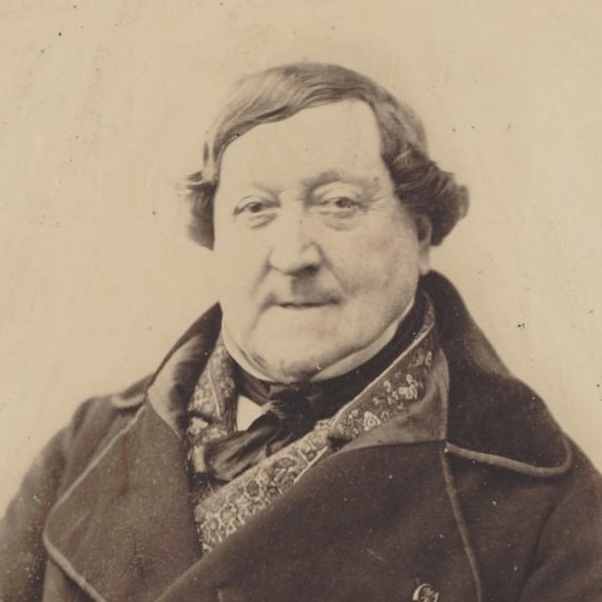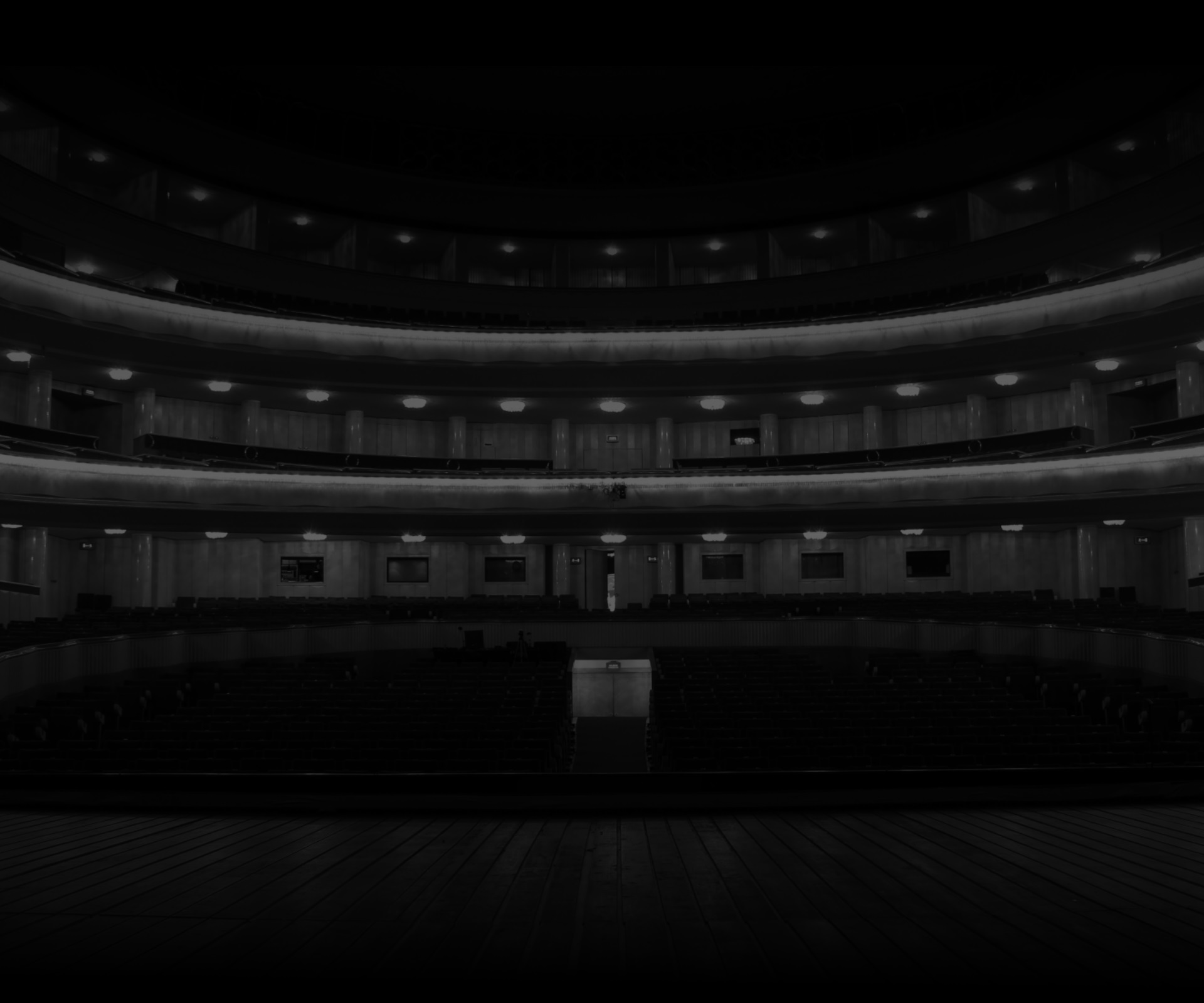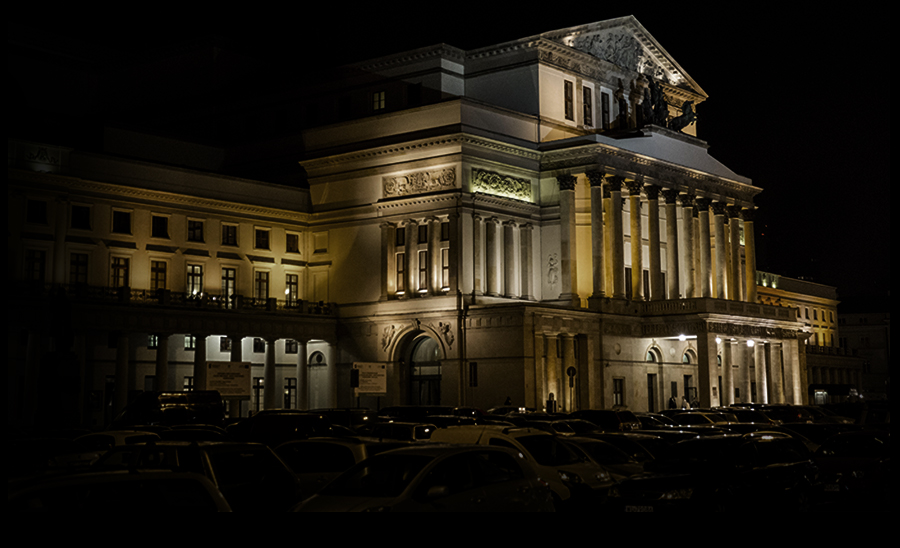
Gioacchino Rossini (1792–1868) – Italian composer and one of the most prominent creators of bel canto operas. He wrote thirty-nine operas, most of them comedies (opera buffa). Nevertheless, among the few serious operatic works he authored there are such masterpieces as Guillaume Tell.
Rossini was born in Pesaro, but his family moved to Bologna when he was very young. There he took up music lessons, playing the cello and studying counterpoint. At the age of 18 he staged his first opera in Venice, than in Milan, Bologna, and Rome. However, he had not become famous before the premiere of Tankred at the Teatro La Fenice in Venice. Another success came in 1816 when Rossini premiered The Barber of Seville, today recognised as one of the most important opera works in history. In the course of eight years between 1815 and 1823 Rossini composed twenty operas. In 1823 he visited Paris and London; the following year saw him becoming the director of the Théatre Italien in France's capital. After his contract expired, Rossini stayed in Paris, working for the royal court. The year 1829 saw the debut of Guillaume Tell, one of the most important operas in the composer's oeuvre, described by another Italian composer, Gaetano Donizetti in these words: 'The first and last acts were written by Rossini; the second, by God!'. It also proved to be the Rossini's last opera by the composer's own decision. At that time his mother died, and soon afterwards Rossini found himself travelling to Bologna worried by the news of his father's health deteriorating. He came back to Paris much later than expected; in July 1830 the city was taken over by a revolution. For the reminder of his life he would occasionally devote his time to composing, writing a few more significant works for voice and instruments and completing a collection of chamber pieces called Péchés de vieillesse (Sins of Old Age). Dying in 1868, Rossini left unfinished his last work, Petite messe solennelle which he himself described as 'the last of my péchés de vieillesse' (sins of old age). He died in Paris and was buried in the Père-Lachaise cemetery but nineteen years after, his remains were moved to Florence.
Despite achieving monumental fame, Rossini had been continuously pestered by the sense of squandering his talent and wasting the opportunities life offered him. Rossini's operas continue to be highly popular all over the world. Apart from The Barber of Seville, audiences are always eager to see and listen to Cinderella, The Italian Girl in Algiers, The Turk in Italy, Zelmira, or The Journey to Reims.
Controversies is a series of debates on the opera as a cultural phenomenon. The project offers space to talk contexts, search for news interpretations, venture into unknown territories.
In the 2014/15 season we will be reflecting on motifs from selected titles, reaching out to different arts -- especially the cinema. We have planned a series of film screenings to take place in Warsaw's studio cinemas, and serve as food for discussion. Terra incognita of old-time dilemas has already been conquered to some degree, yet the opera continues to prove that there is still more to discover...
I. "CIRCLES OF ALIENATION" IN OPERA -- THE MERCHANT OF VENICE
Taken from the title of Michał Głowiński’s book, such areas of incompatibility are important for the biography and musical oeuvre of Andrzej Czajkowski (André Tchaikowsky). A struggle with identity and constant tension between expectation and fulfilment defines the lines along which reflections on alienation develop. Gay? Jew? Utopia of coherence?
II. OPERA HUMANA -- MARIA STUARDA
Kant’s starry sky is sometimes overcast. Where should we seek advice? Psychoanalysis tries to answer questions on the imperative of human activity, on the driving force that controls our choices. Is it other people, our own experience, toxic parents, childhood, traumatic events, love or hatred? Why do we need responsibility and does a morality of music exist?
III. THE SYNAGOGUE OF SATAN -- POWDER HER FACE
The meanders of femininity are an inexhaustible theme. Woman controlled by desires, hysterical, a witch – battling this image has taken centuries. Never fear: this is just a masculine projection, a sublimation of male fears, specifically created in its own non-image – or so feminism reassures us. Is the Duchess of Argyle a woman enslaved or just the opposite – emancipated? Are the opinions about her an argument in the anti-feminist discus- sion or a victory for feminism? From Orpheus, through Przybyszewski, Poe and Dostoyevsky, to Berg and Adès.
IV. THE TERRITORIES OF OPERA -- THE 'P' PROJECT
The death of opera has been announced many times before. But today, does not the old term dramma per musica seem a more appropriate name? What challenges do 21st century artists face from opera as an art, and what from opera as an institution? What does it have that provokes, entices, repels? How do today’s generations of composers approach the reality of opera theatre? Is the composer struggling with the institution a battle whose result is a foregone conclusion? Creative strategies and work tactics – opera is (not) dead.
V. WITNESS OF THE TIMES -- WILLIAM TELL
An assassination attempt on Napoleon III was made in 1858. The emperor was on his way to see a production of William Tell. For decades Rossini’s opera had to wait in the vestibule of Milan’s La Scala. The Nazis banned it. It was cut, modified, it was politically and ideologically inconvenient. William Tell – a work of art as a witness of history.




